
44+ Simple Rental Agreement Templates – PDF, Word
Legally mandatory documents that are required to be signed by both the parties are the simple rental agreement templates. These…
Jul 12, 2023
A commercial agency agreement consists of a natural or a legal person also known as an agent who acts on behalf of and binds another legal or natural person also known as a principal. It is bound on a continuing basis, in exchange for compensation, for further commercial activities on behalf of others, as a neutral broker, without bearing the risks involved in the operations, unless otherwise decided.


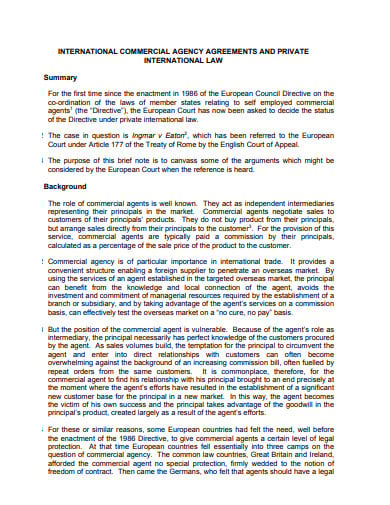 reedsmith.com
reedsmith.com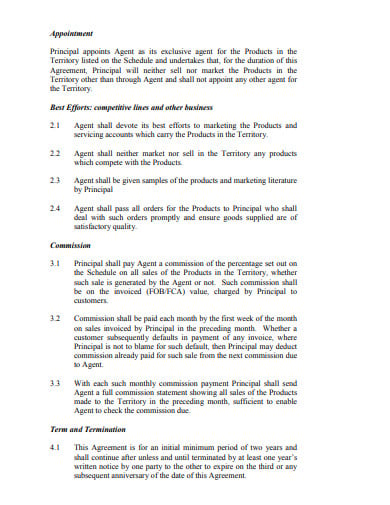 ierc.bia-bg.com
ierc.bia-bg.com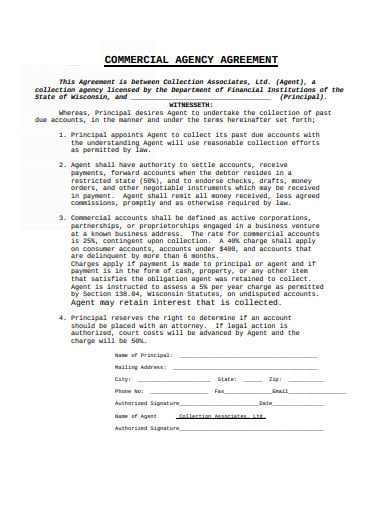 collectionassociates.net
collectionassociates.net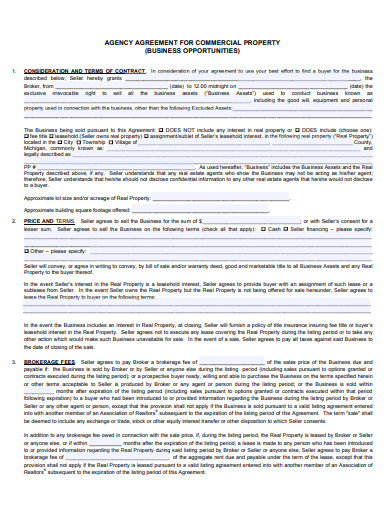 mirealtors.com
mirealtors.com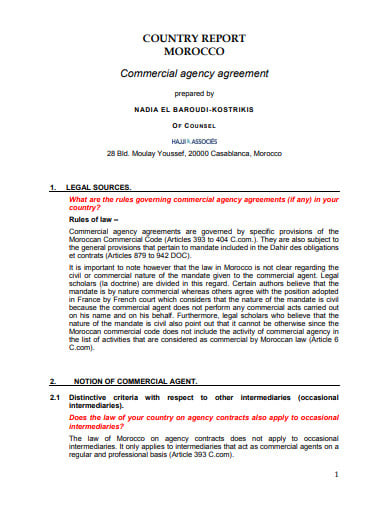 nbklaw.eu
nbklaw.eu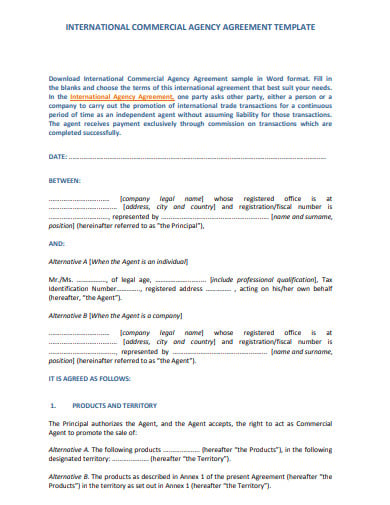 globalnegotiator.com
globalnegotiator.com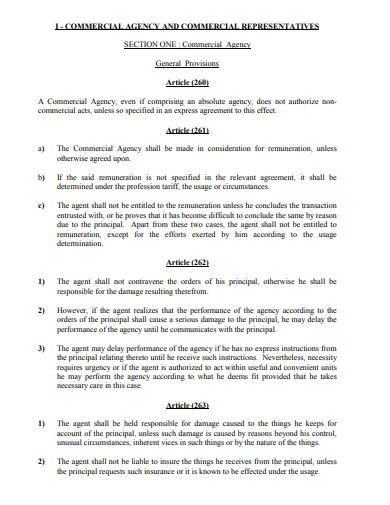 kwinaustralia.com
kwinaustralia.com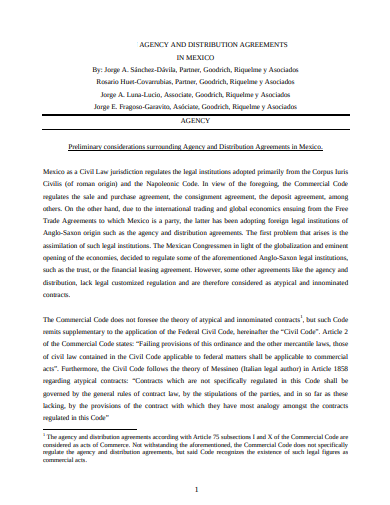 goodrichriquelme.com
goodrichriquelme.com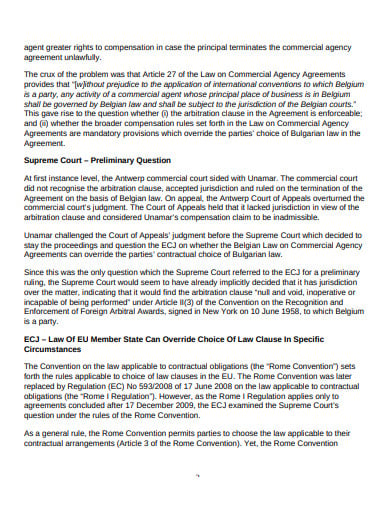 lexgo.be
lexgo.be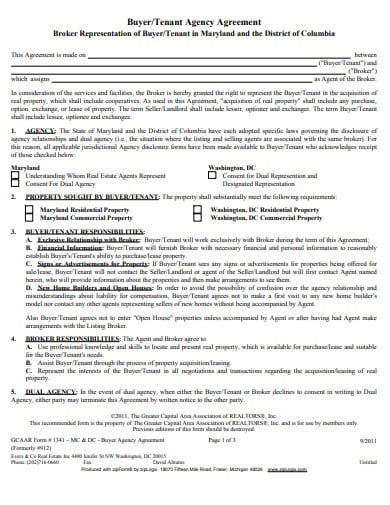 bergersandlerplus.com
bergersandlerplus.com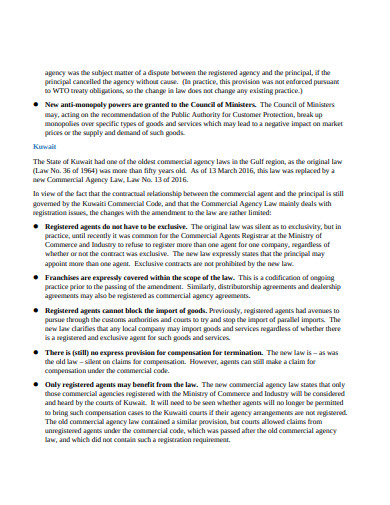 amereller.com
amereller.com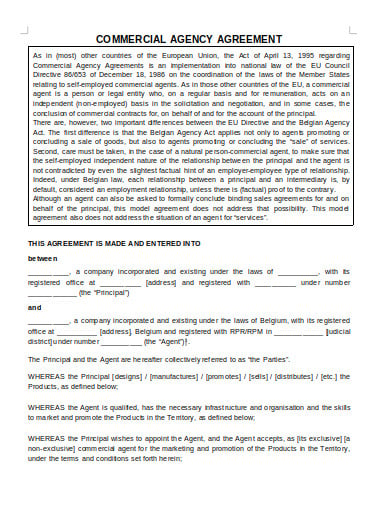 uitgeverijlarcier.larciergroup.com
uitgeverijlarcier.larciergroup.comThe term commercial agency refers to a partnership between a particular individual or any legal entity or an agent who represents, acts on behalf of them and binds another legal entity or any individual or a principal. This is done under the principal’s request or guidelines. The role of these commercial agencies is more barely defined as a partnership created only by a written contract or power of attorney in some countries.
A commercial agent refers to a self-employed salesperson who is allowed to negotiate and contracts on behalf of a company for the selling or purchase of goods. The company that appoints the agent is known as the ‘principal’ in this context. A commercial agent can also refer to an individual, a partnership or any company.
Commercial agents can also help businesses develop themselves in foreign markets. In particular, agents depend on where the Principal lacks local knowledge. By making use of the local knowledge and contacts of the agent, the principal may avoid having to establish a local branch or subsidiary company. Principals usually don’t pay a salary to their employees. Rather, the principal charges a charge to the company, measured as a percentage of the total selling price of all goods sold under the arrangement with the agency.
A company can test a foreign market without the usual risks that can be involved in investing in a new market with the help of commercial agents. An organization can use commercial agents to develop their goodwill in their products when it tries to establish itself abroad. The agent’s job is to find new clients and sell the goods on behalf of the principal. Typically, an agent would not be allowed to negotiate with those new clients. Meanwhile, the agent must sell the goods according to the terms and conditions of business of the principal, unless the agent has agreed otherwise.
These sets of regulations are generally applied to the relationship between the person appointing an agent known as the principal and the agent who is appointed to sell the principal’s products. The regulations that have been drafted in 1993 do not apply to agency appointments that provide services only and where the agent just introduces the customers instead of completing sales.
The principal must always stick to the terms of the agreement and act with good faith towards the agent. Ensure that the agent always has all the documents and information it needs to be able to perform its duties under the terms of the agreement. The agent may also request additional requirements to be annexed. If you are unaware of these additional conditions, ask a lawyer.
An agent must look after the needs of the principal, and conform to the terms of the agreement. He/she must always be in good faith with the principal. The agent can also request for additional conditions to be appended to. Ask a lawyer if you are not sure what additional conditions you can mount.
When, for any cause other than the agent’s choice, the principal terminates an arrangement with an agent, the agent may demand either a compensation payment or an indemnity payment.
The principal must also provide a notice period that will be equal to one month for the first year, two months for the second year and so on to the agent before the former ends the agreement. The amount of compensation is generally the same for the notice period that the agent can claim.

Legally mandatory documents that are required to be signed by both the parties are the simple rental agreement templates. These…

A purchase and sale agreement is a compulsory legal document to have when a buyer and seller are entering into…

Living alone or with a family has enormous risks, and the responsibilities can be complicated to manage. Become a good…

Discovering and verifying the top ability is no simple undertaking. It requires a profound comprehension of the organization’s culture and…
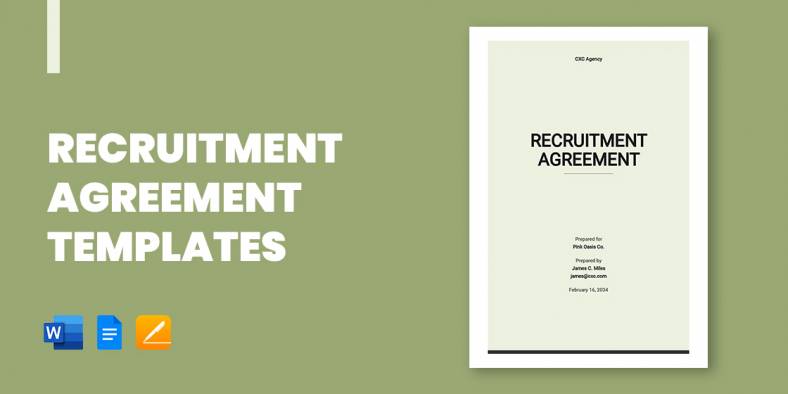
An agreement that occurs between two parties where one party (the recruiter or recruiting firm) is appointed by the other…

During the 1848 revolutions in Europe, the term “logistics” played a crucial role in transferring goods, equipment, and military personnel.…

The recruitment services agreement is provided by the recruitment agencies. And, that acts as the middleman or the middle-party between…
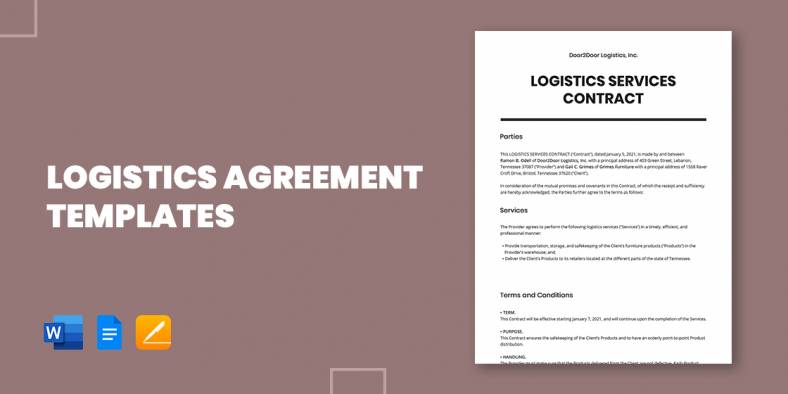
Many projects among businesses involve heavy management and great plans sample that logistics will be relevant. Operations involve proper organization…
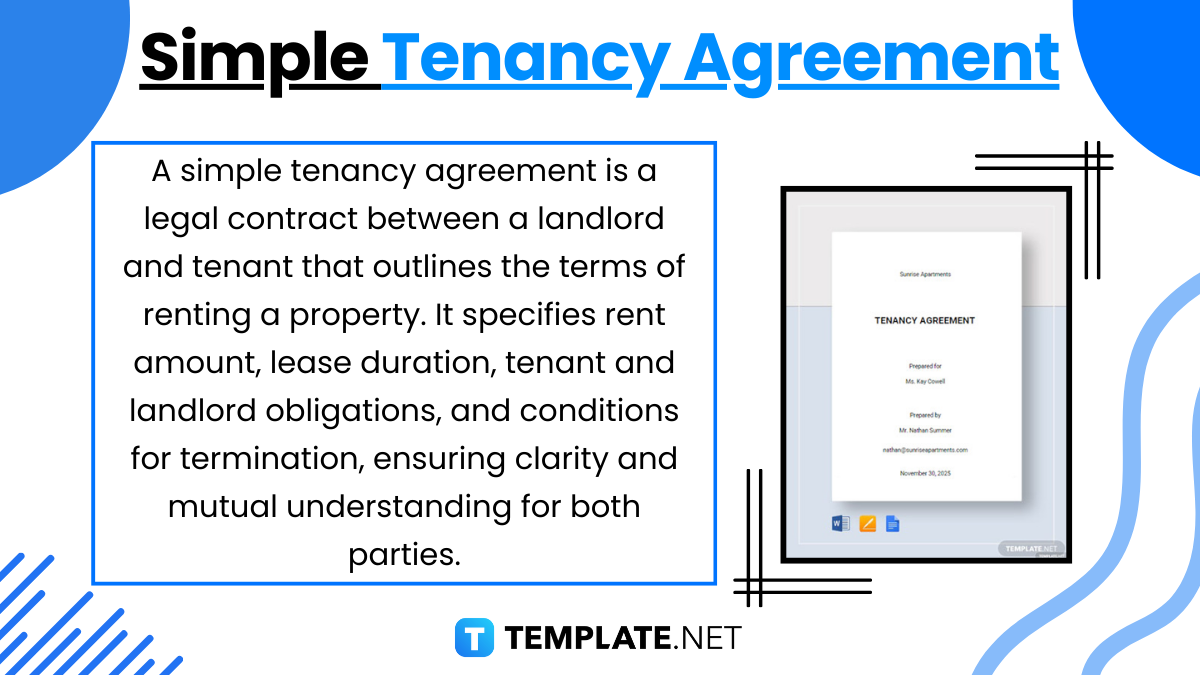
A simple tenancy agreement is a legally binding document that outlines the terms and conditions between a landlord and a…